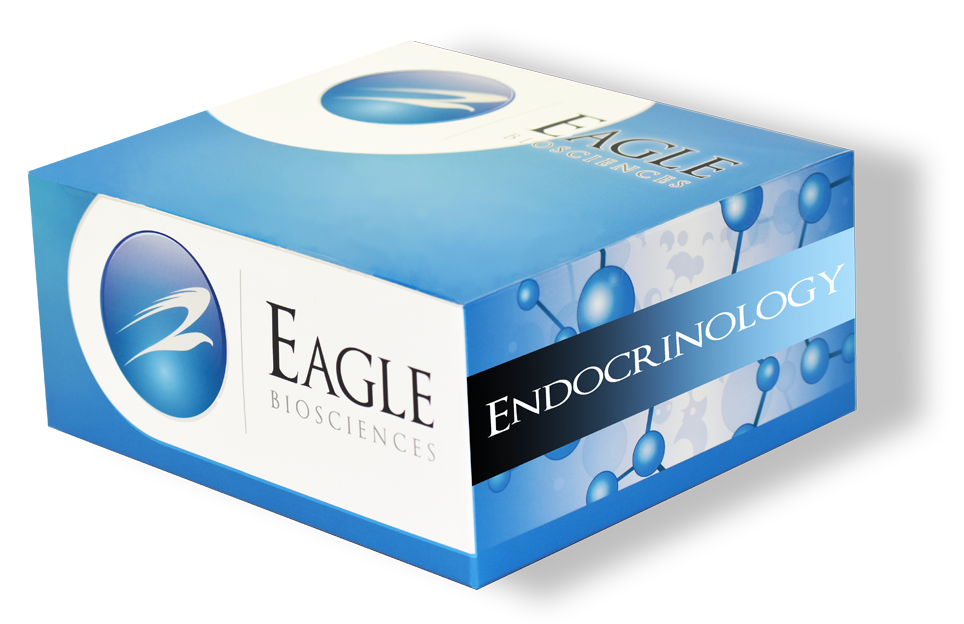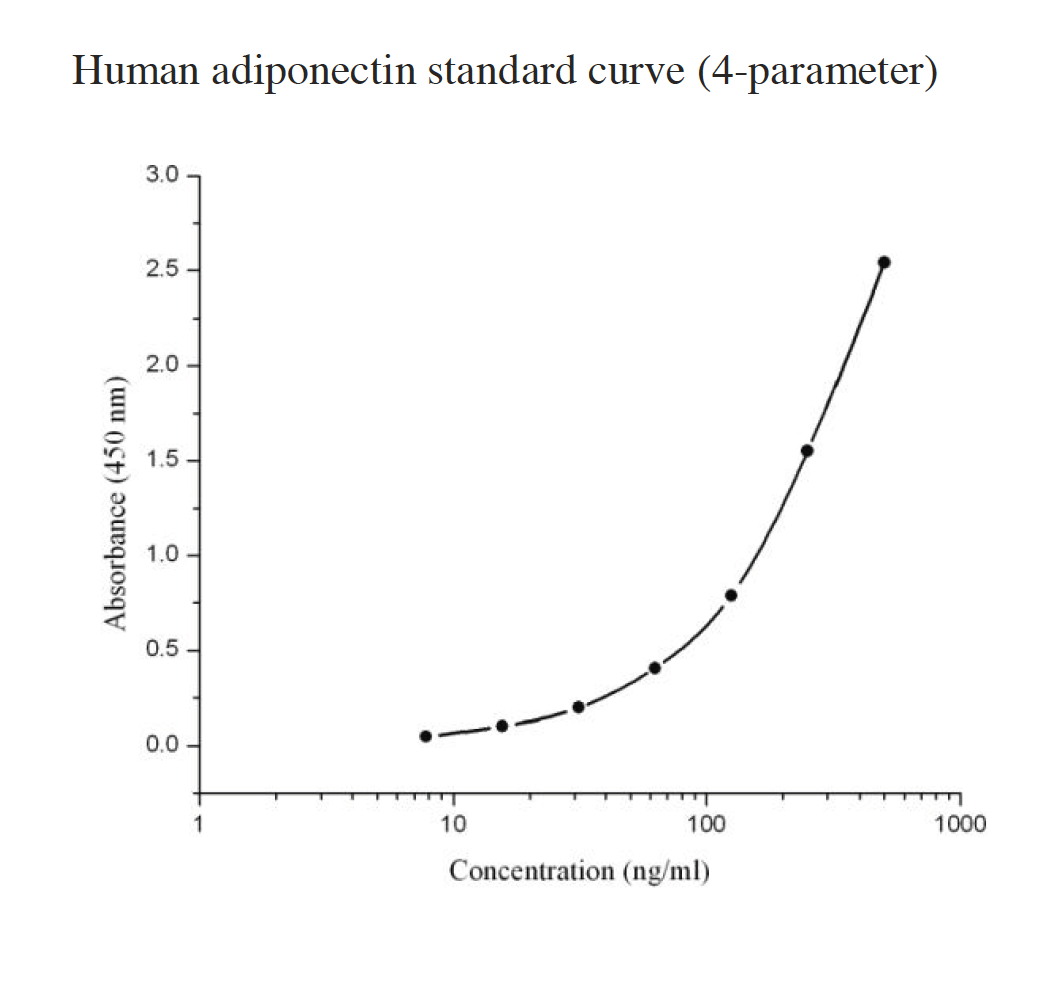Rapid Adioponectin ELISA Kit
The Rapid Adiponectin ELISA Kit is For Research Use Only
Size: 1×96 wells
Sensitivity: 7.8ng/ml
Standard Range: 7.8g/ml-500ng/ml
Incubation Time: 45 minutes
Sample Type: Serum, plasma, and cell culture supernates
Sample Size: 10 µl
Alternative Names: apM1, Acrp30, GBP28, and adipoQ
Assay Principle
The Rapid Adiponectin assay is a sandwich ELISA designed for the quantitative detection of human adiponectin in samples in 1 hour. A mouse monoclonal antibody specific to human adiponectin has been pre-coated onto a micro-titre plate. The user pipettes standards and samples into the wells and any human adiponectin present is sandwiched by the immobilised antibody and a second horseradish peroxidase (HRP)-linked monoclonal antibody specific to human adiponectin that is co-incubated with the samples. After wash step to remove any unbound reagents, an HRP substrate solution is added and color develops in proportion to the amount of human adiponectin bound initially. The assay is stopped and the optical density of the wells determined using a microplate reader. Since the increases in absorbance are directly proportional to the amount of captured human adiponectin, the unknown sample concentration can be interpolated from a reference curve included in each assay.
Related Products
High Sensitive Adiponectin ELISA Kit
Mouse Adiponectin ELISA Kit



